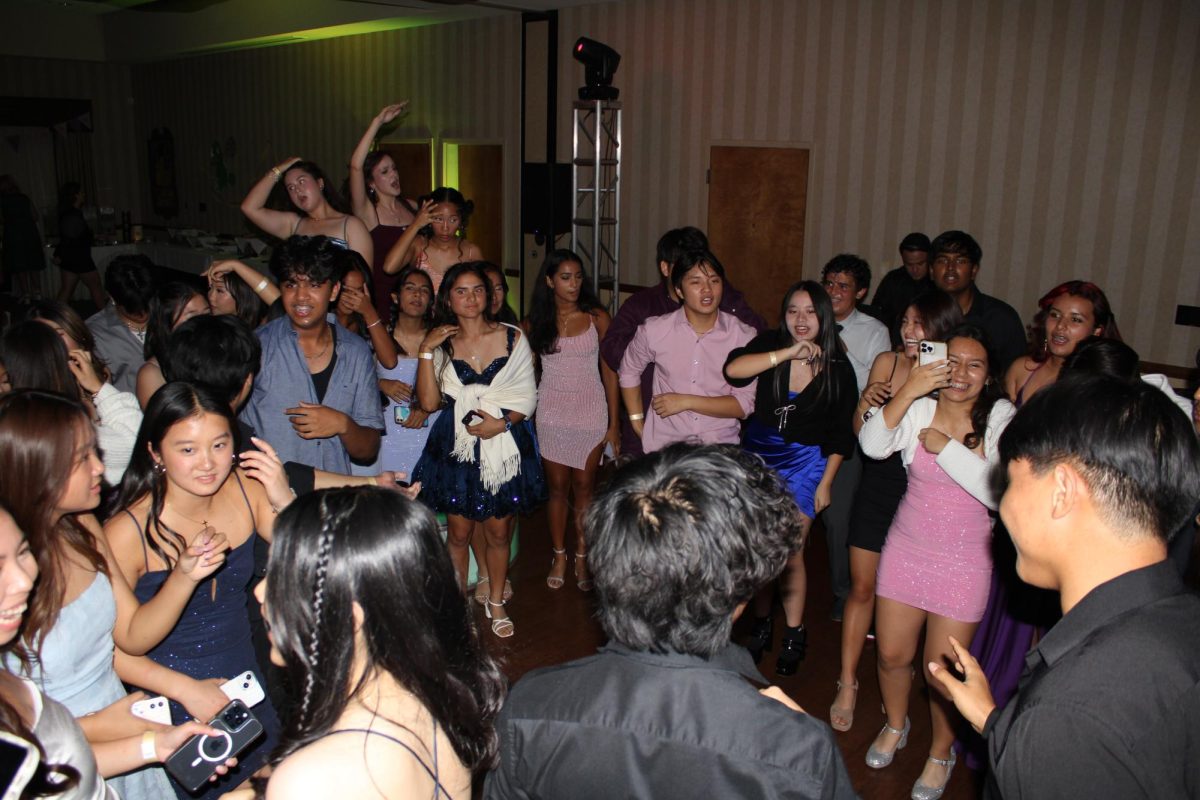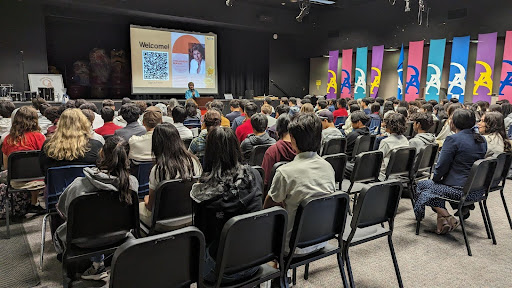Frijoles de la olla is more than beans simmered in traditional Mexican flavor — it’s an symbol of character, a keepsake of her mother’s wisdom and the driving inspiration of Emmy award-winning Yolanda Nava’s novel of folktales, poetry and sayings, “It’s All in the Frijoles.” On Dec. 6, Nava visited Oxford Academy to share her book’s multigenerational Latino stories.
Dissecting the essence of her novel, Nava meaningfully addressed students, emphasizing character as the ability to discern between the perfect and imperfect in one’s life.
The idea stemmed from a moment in 1989, in which her late mother cited frijoles (beans) as what made her strong during her life. When preparing frijoles de la olla, her mother would carefully take out any beans with imperfections and solely keep the flawless ones for cooking.
Nava’s mother applied the same methodology in building her character, sorting between the perfect and the imperfect, her strengths and her weaknesses. Inspired, Nava carried her mother’s wisdom through “It’s All in the Frijoles,” a timeless collection of gripping Latino tales and poetry, published in 2000. The book intertwines stories from famous Latino figures such as actor Edward James Olmos and Nobel laureate Octavio Paz with dichos, Spanish proverbs— sacred, heartfelt sayings in Latino culture meant to be passed down generations.
“Stories are how we carry forth culture, it’s how we reflect,” she said to the students.
Her mother’s attitude towards perfection carried over to Yolanda’s success in journalism in a different context. Discerning between reliable sources was a skill she developed during her time reporting for broadcasting network KNBC. Later on, this also became necessary when dealing with sudden blindness in 2009.
“I learned early on after losing my sight that eyes are spiritual discernment. They are mental, not material,” Nava said. “You can’t just go by what you see in front of you. What you see in the story, how you comprehend what is going on, is by the angle of the observer.”
As the first Mexican-American woman to report for a broadcasting studio in Los Angeles, Nava pioneered Latino representation within journalism during the 80’s and 90’s. Nava earned an Emmy award for her reporting of the 1987 Whittier Narrows earthquake, marking one of the most significant moments of her career. Her success found her launching her own broadcasting company, KCMY-TV, the first TV station in the U.S. operated by Mexican-American women.
In the closing of her guest talk, Yolanda addressed the sole thing she aspires to change in the world: hate.
“Sometimes you need to walk away from people who are cruel. Take positive actions and join groups in order to eliminate hate,” Nava said. “We are all human beings. We cannot hate.”



























































